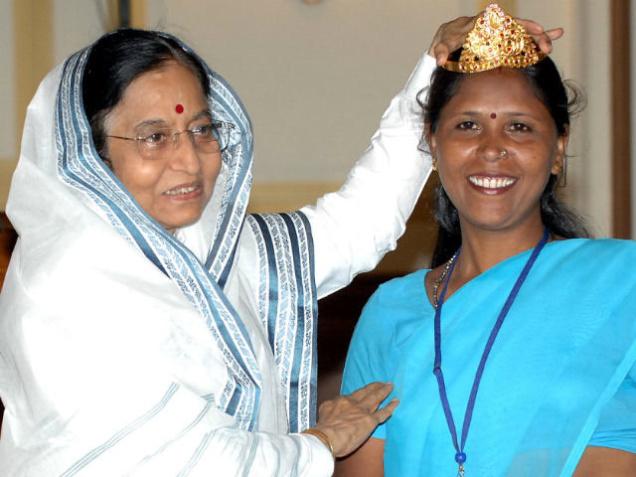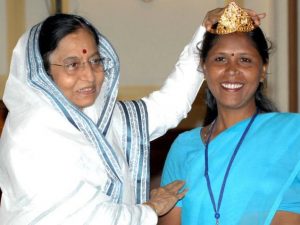London: Some time ago she was untouchable in Rajasthan, but now she is the icon of marginalized women of the word.Usha Chaumar used to be a manual scavenger in Alwar, Rajasthan,but she is now presented as the changing face of Indian society. She deliverd the speech in front of the scholar of Univsity of Portsmouth, London. Recalling the incident, the University said that the rights of most vulnerable and marginalized people of the world are always full attention of the University.
About 130 km from the Central London, 42-year-old Usha Chaumur were invited to speak British academic scholars last night. On this occasion Usha not only address with the full confidence to the British scholars, also share the some untold story of her life. She told how they were struggle for identity and fundamental rights. She spoke at a special panel on ‘Sanitation and Women’s Rights in India.’
The British Association for South Asian Studies (BASAS) is one of the world’s leading learned societies for the study of South Asia. On this occasion, Conference Coordinator Dr. Taslim Bareilvi said that we are excited to called Usha Chaumur as a representative of the poor and disadvantaged women.
Ms. Chamour of Hazurigate Harijan colony used to remove night soil and was treated as an ‘untouchable’ till she was rescued — along with many other women engaged in the same work — and rehabilitated by NGO Sulabh International. She is now working as a motivator to eradicate the age-old practice.
Ms. Chamour will visit England with Bindeshwar Pathak, founder of Sulabh International, who has also been invited to address the special session.
Usha Chamour was married at 10 and forced into manual scavenging which was the only livelihood her family had known for generations.
Transforming lives
Sulabh International has helped transform the women’s lives by teaching them other livelihood options such as embroidery and making noodles and pickle. In Alwar and Tonk, Sulabh has helped manual scavengers become small-time vendors — they are now even invited to upper caste households for weddings.


















